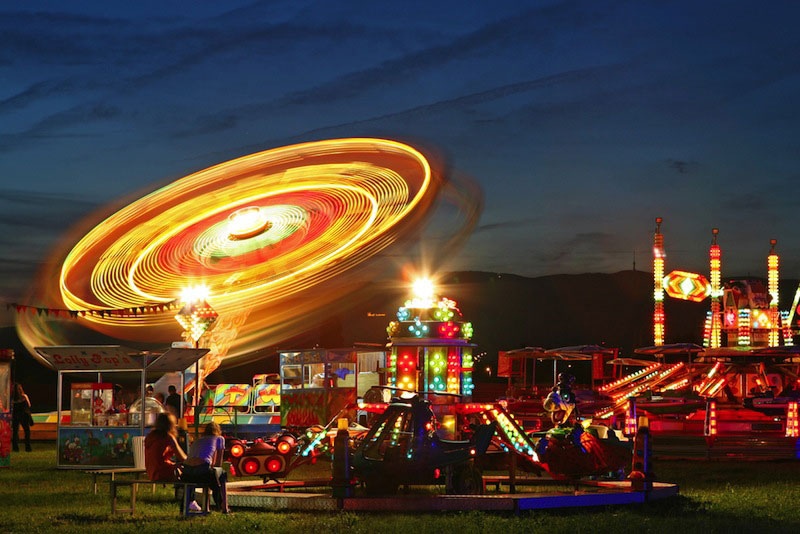How a Fair Ride Caused Woman's Year-Long Dizziness

A woman in England has felt persistently dizzy ever since she rode a spinning ride a year ago at a fair. Doctors say her condition is caused by a lesser-known type of migraine.
Bobbie Lane, 26, went on the ride last year at a festival in Reading, England, according to the Daily Mail. The high-speed ride, called the Superbowl, rises up into the air while rotating, and spins riders in their individual carts.
But Lane continued to feel dizzy long after the ride stopped. "When I got home, I was still dizzy — it felt like I was permanently at sea," Lane told the Daily Mail.
She was diagnosed with migraine variant balance disorder, also called migraine-associated vertigo, which is a condition related to migraines that involves a sensation of dizziness or feeling off-balance. [Ouch: 10 Odd Causes of Headaches]
In people with this condition, vertigo may be the only symptom of the migraine, said Dr. Sujana Chandrasekhar, director of the North Shore-LIJ Health System's Comprehensive Balance Center in New York, who was not involved in the woman's case. But other patients have headaches at the same time as their vertigo, or at unrelated times, Chandrasekhar said.
Lane had migraines before she experienced vertigo, the Daily Mail said.
It's thought that the migraine headaches interfere with the normal way people keep their balance, Chandrasekhar said.
Get the world’s most fascinating discoveries delivered straight to your inbox.
To maintain balance, the brainstem processes signals it gets from the inner ear, the eyes and muscles in the back and feet, Chandrasekhar said. The brain needs to process all this information quickly, Chandrasekhar said, so people know when they are really dizzy (if they are on a spinning ride, for example), or if they are not moving.
"On a ride, you should feel dizzy — part of the fun is that you feel dizzy," Chandrasekhar said. But once you get off the ride and take a few steps "you figure out that you're on earth again," Chandrasekhar said.
In people with migraine-associated vertigo, the brain is not able to interpret this information quickly enough — because of how migraines affect signaling in the brain — resulting in a feeling of dizziness, Chandrasekhar said.
Patients with migraine-associated vertigo can feel dizzy when they watch 3D movies, do jumping jacks, walk in a busy center like Times Square, or in other situations where their brain needs to process complex visual stimuli, Chandrasekhar said.
Treatment for the condition is often multifaceted, involving medication, as well as changes in diet and vision therapy that retrains the eye muscles, Chandrasekhar said. "A more global approach really helps these patients," Chandrasekhar said.
Patients are sometimes put on motion sickness pills, but this is not good over the long term because the medications suppress the central nervous system, Chandrasekhar said.
Chandrasekhar said some patients may feel nervous about bringing up these symptoms to a doctor, but they should not have to live with the symptoms.
"There's such a quality of life to be re-established when we can make the diagnosis properly, and start doing multipronged treatments," Chandrasekhar said.
Follow Rachael Rettner @RachaelRettner. Follow Live Science @livescience, Facebook & Google+. Original article on Live Science.

Rachael is a Live Science contributor, and was a former channel editor and senior writer for Live Science between 2010 and 2022. She has a master's degree in journalism from New York University's Science, Health and Environmental Reporting Program. She also holds a B.S. in molecular biology and an M.S. in biology from the University of California, San Diego. Her work has appeared in Scienceline, The Washington Post and Scientific American.


